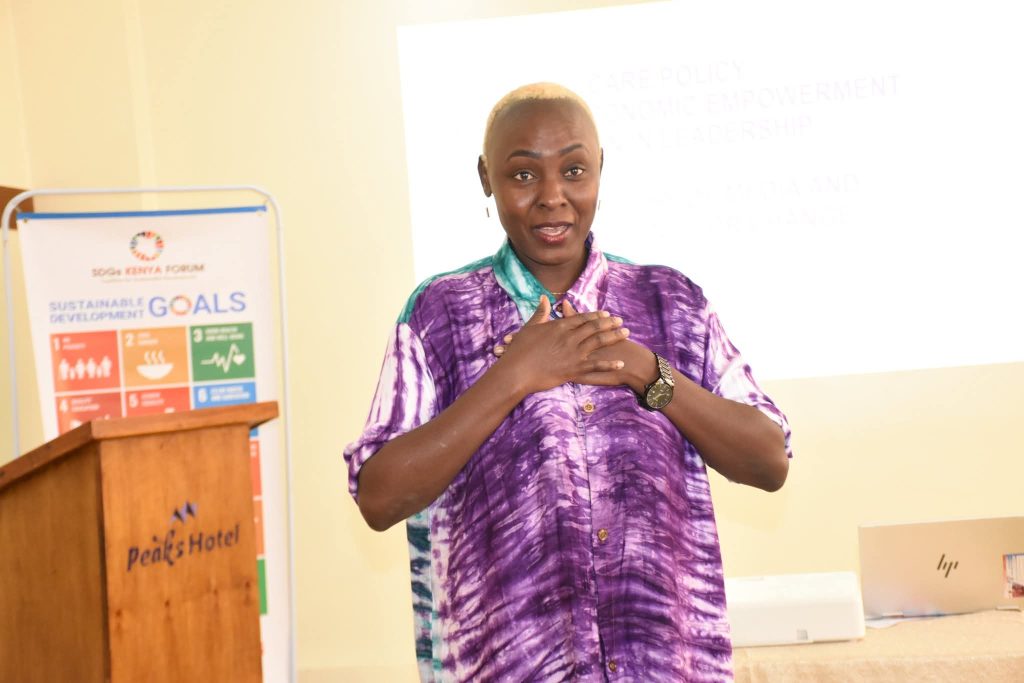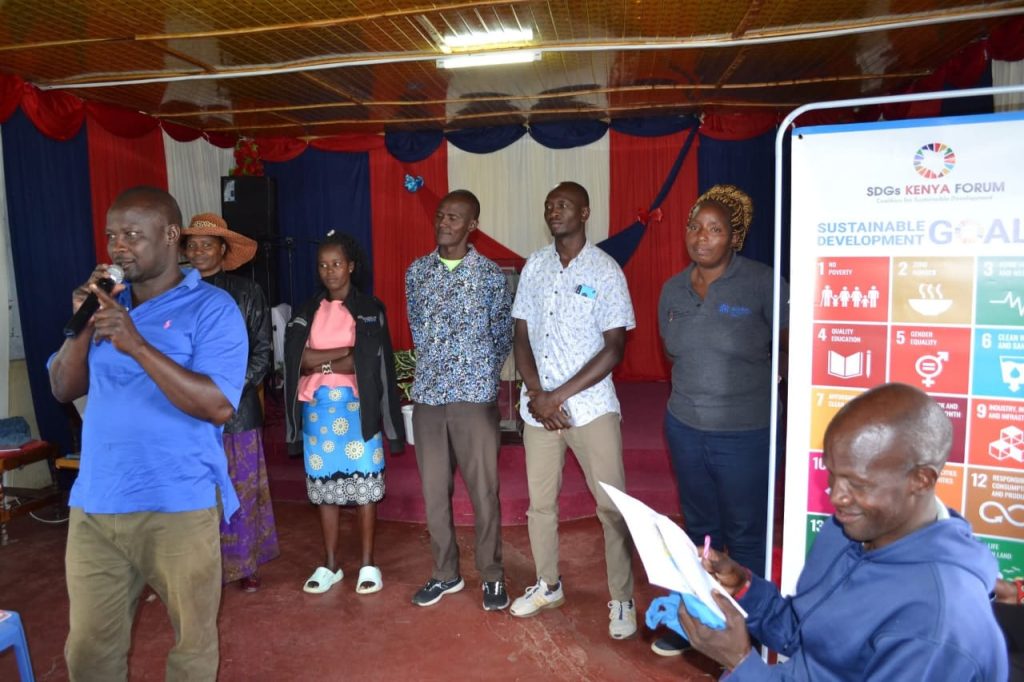Stakeholders Urge Journalists to Champion SDGs as Key Drivers
By Gerald Mukembu
Stakeholders advocating for the implementation of the Sustainable Development Goals (SDGs) are calling on journalists to play a more proactive role in raising public awareness and pushing for policy change to realise the SDGs in Kenya.

AMWIK executive director Queenter Mbori
This call was made during a three-day workshop held in Laikipia County, organised by SDGs Kenya Forum in partnership with Pathways Policy Institute (PPI) and the Association of Media Women in Kenya (AMWIK). The event brought together journalists, civil society organisations, and county government representatives to deliberate on strategies for accelerating the SDGs at the community and national level.
Participants were taken through all 17 SDGs, with a focus on critical themes such as gender equality, women’s economic empowerment, unpaid and undervalued care work, and the role of women in leadership. Discussions also tackled broader issues around environmental sustainability, climate justice, and inclusive public health policy.
Facilitator John Otieno emphasised that data continues to show a disproportionate burden of unpaid domestic and care work on women and girls in Kenya.

Community stakeholders at Jua Kali in Laikipia engaged by SDGS Kenya Forum and AMWIK on the critical role of storytelling in shaping public narratives and amplifying unheard voices.
“There is an urgent need to recognise, reduce, redistribute and value unpaid care work through policies that promote public services, infrastructure, social protection, and shared household responsibilities,” Otieno said.
He highlighted the interconnectedness of the SDGs from eradicating poverty and hunger to ensuring peace, justice, and strong institutions stressing the importance of integrated approaches and localised action.
AMWIK Director Queenter Mbori underscored the critical role the media plays in driving the SDGs forward.
“Media must go beyond reporting. Journalists need to advocate, interrogate policy, and amplify marginalised voices. This is how we make progress, particularly on SDG 5 on gender equality, SDG 10 on reduced inequalities, and SDG 16 on peace and justice,” she said.
Mbori also highlighted AMWIK’s work in pushing for gender-sensitive reporting, increasing women’s visibility in political and leadership spaces, and equipping media practitioners with tools to challenge traditional gender norms in content creation.
On his part, Peter Ngure of the Pathways Policy Institute (PPI) pointed out the importance of community engagement in influencing public policy. He shared insights from dialogues held with residents of Jua Kali in Laikipia, where health, climate change, and environmental concerns emerged as top priorities.
“We are integrating climate justice into public health discourse, ensuring that policies on primary health care address both human and environmental well-being,” Ngure stated.
He also stressed the importance of capacity strengthening, particularly for youth, civil society, and local government actors, to boost advocacy, social accountability, and implementation tracking of development goals.
The workshop concluded with a call for multi-stakeholder collaboration, with a specific appeal to media professionals to use their platforms to educate, inspire, and hold duty bearers accountable in the journey toward a more sustainable and equitable Kenya.

